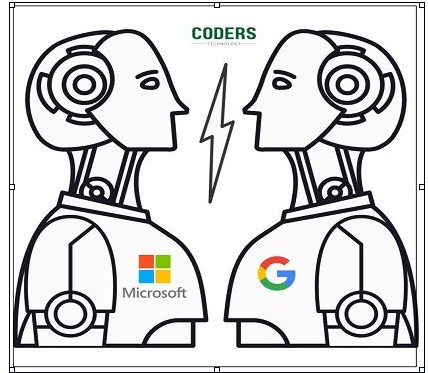The competition between tech giants Google and Microsoft has escalated with the release of ChatGPT. Both companies are striving to outshine each other in the realm of artificial intelligence. This recent turn of events has sparked a series of pressing questions: Is search dying? Will Google lose its dominance over search? Are Microsoft and Google compromising their ethical guidelines in their pursuit of AI dominance? What does the future hold for the internet? Let’s delve into this captivating showdown between Google and Microsoft that will shape the future of technology and the internet.
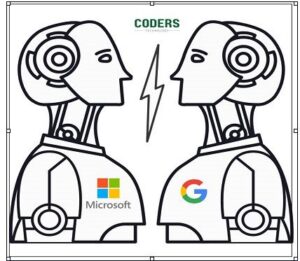
ChatGPT: Igniting the AI War and Threatening Google’s Search Dominance

The competition between Microsoft and Google intensified in November when OpenAI, a San Francisco startup, partnered with Microsoft to release ChatGPT, a chatbot that has gained immense popularity. It is estimated to be used by 100 million people every month. This AI language model is capable of generating coherent texts and providing direct answers to user queries, rather than traditional link-based search results. It poses a significant challenge to Google, igniting the AI war. There is speculation that ChatGPT could potentially replace Google search entirely in the near future.
Is Google concerned about ChatGPT? Reports from various news agencies suggest they are. According to the New York Times, Sundar Pichai, the CEO of Google and Alphabet, declared a Code Red situation, signifying a critical and urgent matter. He called in Larry Page and Sergey Brin, the co-founders of Google, for assistance. Together, they held multiple meetings with executives to address Google’s artificial intelligence (AI) capabilities, making it a top priority.
The New York Times also reported that Pichai has directed various teams within the company to realign their efforts towards addressing the potential threat posed by ChatGPT to Google’s search-engine business. This response is understandable because around sixty percent of Google’s revenue is derived from search. Any threat to this vital aspect of their business could potentially present an existential challenge.
This puts Google in a defensive position as search is vital to their operations and market dominance, making them more vulnerable to attacks on their market share. In contrast, Microsoft has diversified revenue, enabling them to take greater risks and ship updates faster, as they do not have a significant user base to lose.
Defensiveness Undermines Leadership: Can Google Overcome Nerves and Make the Right Decisions?
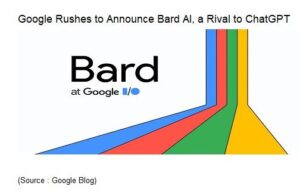
Google announced Bard AI, its new artificial intelligence chatbot, on February 6, 2023,
as a competitor to ChatGPT. However, Bard’s debut did not go as planned. Many Google employees criticized the company’s leadership, particularly CEO Sundar Pichai, for the way the announcement was handled. Employees referred to the announcement as “rushed,” “botched,” and “un-Googley.”
This sense of urgency is evident in Bard’s promotional video, in which it incorrectly answered the question “What new discoveries from the James Webb Space Telescope (JWST) can I tell my 9-year old about?” In the advertisement, Bard claimed that the JWST had captured the first images of exoplanets. In reality, those images were taken by the European Southern Observatory’s Very Large Telescope (VLT) back in 2004, as confirmed by NASA. For further details, please refer to Reuters‘ comprehensive report.
As reported by Forbes, Bard’s incorrect response to a question in a promotional video led to a significant market loss of $100 billion for Alphabet Inc., Google’s parent company. This outcome further amplified the pressure on Google.
In addition, Google hosted a highly anticipated press conference in Paris on February 8, 2023. However, the event was met with disappointment, as Google Senior Vice President Prabhakar Raghavan and Google Search VP Liz Reid failed to provide any new information or updates regarding Bard AI, Google’s artificial intelligence chatbot. Instead, they focused on demonstrating previously announced technologies, such as Google Lens and the “Immersive View” feature of Google Maps. To add to the disappointment, during Reid’s presentation on the “multi-search” feature, she misplaced or lost the phone that was intended for the live demonstration
These mishaps and embarrassments show that Google is under great pressure. Gil Luria, a senior software analyst at D.A. Davidson has been following the development of AI in the search industry for many years. In a recent report, he noted that Google has been a leader in AI research, but has lagged behind in implementing AI technology into its search product. He also noted that Google’s search product is facing increasing competition from other companies, such as Microsoft and Amazon, which are investing heavily in AI for search. As a result of these factors, Luria believes that Google is now under pressure to catch up with its competitors in the search space. This pressure may have led Google to rush the announcement of Bard, its new AI-powered search engine.
Google is under pressure to maintain its dominance, but Microsoft is willing to take risks in order to disrupt the market. Microsoft CEO Satya Nadella has said that the competition against Google is “asymmetric,” meaning that Google has much more to lose than Microsoft if the market is disrupted. It is all about bearing the risk and striving for better, and the AI battle is on!
Microsoft’s AI-powered Bing takes aim at Google’s search dominance
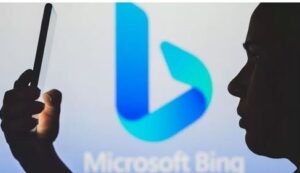
(Source :BBC NEWS)
On February 7, 2023, Microsoft responded to Google’s announcement of Bard AI by launching a new version of Bing that incorporated ChatGPT. This is a significant development in the AI war between tech giants, as it means that Bing can now provide more conversational and informative search results. This could give Bing a significant advantage over Google, which has traditionally focused on providing accurate and objective search results.
Google is the dominant search engine in the world, with a market share of over 92%. This dominance is due to a number of factors, including Google’s early start, its superior technology, and its extensive user base. However, the top searched word on Bing worldwide is “google.” This may seem comical, but it is true that many people use Microsoft Edge as a gateway to navigate to Google. This is because Edge is the default browser on Windows 10 and 11, and it does not come with Google as the default search engine. As a result, many people simply type “google” into the Edge search bar in order to get to Google.
Microsoft’s move to incorporate ChatGPT into Bing is a bold one, and it remains to be seen whether it will be enough to challenge Google’s dominance in the search engine market. However, it is clear that Microsoft is serious about competing with Google, and it will be interesting to see how the two companies’ search engines evolve in the years to come.
Are Microsoft and Google Compromising Their Ethical Guidelines in Their Pursuit of AI Dominance?
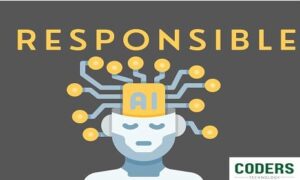
Microsoft and Google have released AI chatbots, despite concerns from researchers about the potential for these chatbots to spread misinformation and harm society. These companies are internally divided, with some employees wanting to develop AI as quickly as possible, while others want to pause development to assess the risks.
In an internal email, Microsoft technology executive Sam Schillace urged his colleagues to move quickly to develop AI products, arguing that the first company to market will be the long-term winner. “Sometimes the difference is measured in weeks,” he wrote. However, a group of more than 1,000 researchers and industry leaders, including Elon Musk and Apple co-founder Steve Wozniak, have called for a six-month pause in the development of powerful AI technology. In a public letter, they warned that AI poses “profound risks to society and humanity.”
Regulators are taking notice of the potential risks of AI and are beginning to regulate it. For example:
- The European Union has proposed legislation that would regulate AI systems that pose a high risk to individuals or society.
- Italy has temporarily banned ChatGPT, an AI chatbot that was found to be generating inaccurate and dangerous statements.
- President Biden has called for a review of the safety of AI.
In response to these concerns, both Google and Microsoft have said that they are committed to responsible AI development. Google spokesman Brian Gabriel said in a statement that “we continue to make responsible AI a top priority, using our AI principles and internal governance structures to responsibly share AI advances with our users.” Similarly, Natasha Crampton, Microsoft’s chief responsible AI officer, said in an interview that six years of work around AI and ethics at Microsoft had allowed the company to “move nimbly and thoughtfully.” She added that “our commitment to responsible AI remains steadfast.”
Conclusion:
Microsoft and Google are eager to get a piece of the AI chatbot market, but they must carefully consider the potential risks before moving forward with their development. According to 15 current and former employees and internal documents from the companies, ChatGPT’s success has made both companies more willing to take risks. It is important to weigh the potential benefits of AI against the potential risks, and to develop responsible AI development practices that will help to mitigate the risks.

